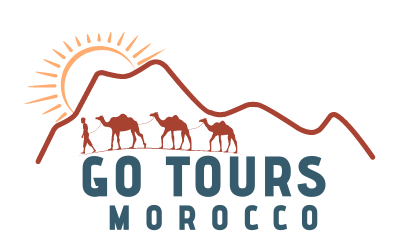Health & Pharmacy
HEALTH & PHARMACY
Traveler’s Health
Being in good health before and during your journey is essential for a smooth and successful trip. Here are some useful tips before embarking on your adventure.
Because nobody is immune to accidents and because health is priceless but can be very costly… While this long list pertains to products that you will hopefully have little occasion to use, always remember to bring only the quantity of medication necessary for your personal use.
Recommended Vaccinations:
Required Vaccinations:
No vaccinations are required or requested for entry into Morocco. However, it is advisable to be immunized against certain diseases and keep your routine vaccinations up to date.
Common Vaccinations:
Tetanus, Diphtheria, Pertussis, Polio, Measles, Mumps, Rubella, Hepatitis A. Note: For sports trips where the risk of injury may be higher and it may take longer to reach a medical facility. N.B: For more information, be sure to consult: www.pasteur.fr
Personal Pharmacy and Medications:
It is highly recommended to bring medications that you are accustomed to, as certain medications may be unavailable in local pharmacies or may exist under a different name or dosage.
Do not forget to pack:
- Medications prescribed by your doctor specifically for your trip.
- Your regular medications that you take when not traveling.
- We recommend carrying a first aid kit with you.
- Travelers who are on regular treatment should have an adequate supply of medication that exceeds the duration of the trip. If you require injectable medication, it is prudent to carry sterile syringes and a prescription written in the language spoken in the destination country.
- A first aid kit is an essential item for travel. It should be practical and contain products suitable for your trip.
Travel Pharmacy:
To create a useful and comprehensive travel pharmacy, it is strongly advised to bring the following medications:
- Pain and Fever Relief: Paracetamol tablets.
- Nausea, Vomiting, and Motion Sickness: Domperidone tablets.
- Diarrhea: Loperamide tablets or probiotics to restore intestinal flora.
- Stomachaches: Antispasmodic medication such as Spasfon.
- Insect Bites and Allergies: Antihistamine ointment and preventive repellent sprays.
- Sunscreen with an appropriate sun protection factor (SPF) for your skin type.
- Sleep Disorders: Products containing Passionflower or Valerian.
- Dry Cough: Medication containing Dextromethorphan.
- Productive Cough: Medication containing Carbocisteine or N-Acetylcysteine.
- Sore Throat: Antiseptic and anesthetic lozenges.
- Heartburn: Gastric bandage tablets or sachets.
- Conjunctivitis: Single-dose eye drops.
- Wounds and Injuries: Disinfectant spray, disposable gloves, scissors, tweezers, survival blanket, sterile dressings, gauze bandage, adhesive tape, and plasters, optionally adhesive wound closure strips.
- Blisters: Compeed blister plasters and compression bandages.
- Sprains and Strains: Anti-inflammatory ointment and cohesive bandages; if there is bruising, add Arnica ointment.
- Water Purification: Water purification tablets containing Hydrochlorazone or Micropur.
- Contact lens or corrective glasses wearers should consider bringing an extra pair to avoid breakage or loss.
The first aid kit described above can be adapted to the destination, duration, and type of trip. The number of products should not be based on the traveler’s fear but on real risks and the absence or distance of medical care facilities.
Travel Pharmacy Management:
Berbere Voyage provides a collective pharmacy that is useful, comprehensive, and tailored to the conditions of the itinerary and the areas where the trip takes place. The pharmacy is managed by the guide…
Having a well-stocked and managed collective pharmacy ensures that essential medications and supplies are readily available during the trip. The guide overseeing the pharmacy will ensure that necessary medications are properly stored, accounted for, and accessible to the travelers.
The collective pharmacy may include a range of medications and supplies to address common travel health concerns such as pain relief, gastrointestinal issues, allergies, insect bites, and minor injuries. It is important to have medications that can alleviate symptoms and provide relief, allowing travelers to continue their journey comfortably.
Additionally, the guide will be knowledgeable about the local healthcare facilities and can provide information and assistance in case of more serious medical issues or emergencies. They may be able to recommend local pharmacies or clinics where specific medications can be obtained if needed.
It’s important for travelers to follow the guide’s instructions and recommendations regarding the proper use of medications, dosage instructions, and any precautions or contraindications. If any medication is needed during the trip, it should be taken according to the prescribed dosage and schedule.
In summary, ensuring the health and well-being of travelers during their journey is crucial. Bringing necessary personal medications, following recommended vaccinations, and having access to a well-managed collective pharmacy can help address common health issues and ensure a safe and enjoyable travel experience. Remember to consult with healthcare professionals or travel clinics for personalized advice and recommendations based on your specific health condition and travel itinerary.

